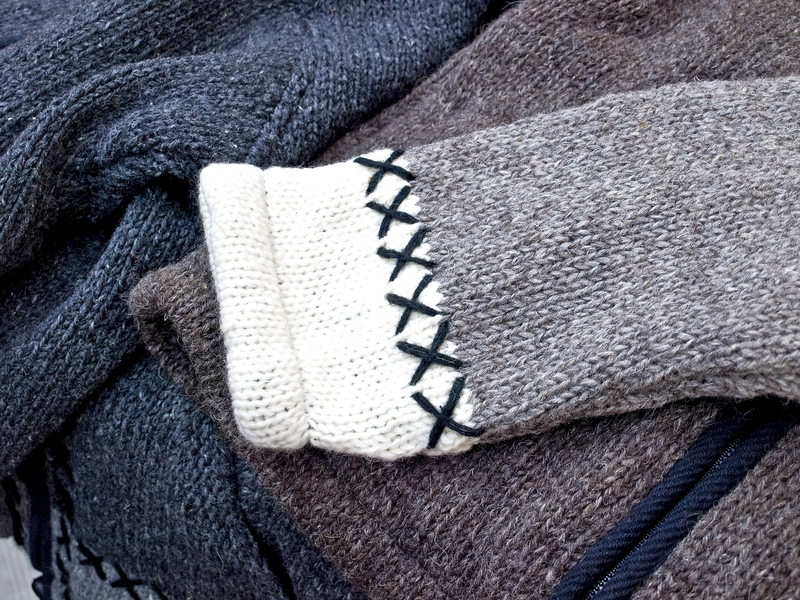Creative Ways to Dispose of Old Pots and Pans Responsibly
Have you ever wondered what to do with your old cookware? Tossing them in the trash is easy, but it's not good for the environment or your community. When it comes to responsible disposal of old pots and pans, there are numerous creative and sustainable options available. In this detailed guide, we'll take you through innovative methods to recycle, repurpose, and dispose of cookware without harming the planet.
Why Proper Disposal of Cookware Matters
Pots and pans are usually made from metal, non-stick coatings, and sometimes even plastic or glass handles. Unfortunately, these materials don't break down easily in landfills. Improper disposal can lead to environmental pollution and wasted resources. Metal pans placed in the trash can take hundreds of years to decompose, releasing toxins and occupying valuable landfill space.
By disposing of old pots and pans responsibly, you can:
- Conserve valuable resources by promoting recycling
- Reduce environmental pollution
- Support local artists and community projects
- Unleash your creativity through repurposing

Assess the Condition: Repair, Reuse, or Recycle?
Before you decide how to dispose of your old cookware, examine the condition of each item. Is it still usable? If so, you might be able to donate or sell it. If it's no longer functional, recycling or upcycling may be the ideal responsible solution.
- Minor Scratches or Cosmetic Issues: Pots and pans with light damages can often be donated, repurposed, or used as garden planters.
- Severe Damage or Warping: Heavily damaged cookware is better suited for recycling or creative upcycling.
- Non-Stick Coatings Peeling: Avoid donating or reselling, as these may be hazardous for cooking future meals, but they're still ideal candidates for creative projects.
Creative Ways to Repurpose Old Pots and Pans
Rather than sending your cookware to the landfill, consider giving them new life through creative reuse. Here are some ingenious methods to upcycle old kitchenware:
1. Transform into Planters and Garden Decor
Turn worn-out pots and pans into charming planters. Drill a few drainage holes at the bottom, add potting soil, and plant your favorite flowers or herbs. Quite quickly, you have a unique and eco-friendly addition to your balcony or garden.
- *Hang frying pans filled with succulents on your garden fence
- Group various-sized pots as a quirky container garden
- Turn a stockpot into a miniature water feature or birdbath
2. DIY Home Decor Projects
Old cookware can become stunning home decor pieces:
- *Wall clocks:* Attach clock hands to a skillet or pot lid and mount on your wall
- *Art displays:* Paint or mosaic broken pans for visual interest
- *Magazine or mail holders:* Hang larger pans with the handle pointing up as a creative organizational space
3. Outdoor and Workshop Uses
*Old pots and pans are surprisingly versatile for toolsheds and yards*:
- Store small hardware or gardening tools
- Use as scoops for animal feed or sand
- Employ as paint trays or mixing containers for DIY projects
4. Creative Gifts and Costumes
With some imagination, old cookware can add character to costumes and gifts:
- Paint and decorate pans as quirky serving trays or wall art for gifting
- Turn pots into creative hats or costume accessories for plays or Halloween
- Create wind chimes using lids, handles, and cutlery
Recycling Old Pots and Pans Responsibly
For items that can't be repurposed or donated, recycling is one of the best ways to dispose of old cookware responsibly. Here's how you can ensure your cookware is recycled properly:
1. Check Local Recycling Guidelines
Most pots and pans are made from metals like stainless steel, aluminum, or copper. These are valuable resources for metal recyclers. However, not all curbside programs accept cookware due to the shape, size, or coatings. Visit your municipality's website or contact your local recycling center to find out their specific requirements for recycling old cookware.
2. Scrap Metal Recycling Facilities
If curbside pickup isn't an option, take your old pans and pots to a scrap metal recycler. These facilities are equipped to handle a variety of metals and will responsibly process the materials for future products. Remember to:
- Remove non-metal components (plastic handles, glass lids) if possible
- Sort by metal type when needed (aluminum vs. steel)
- Clean off excessive grease or food residue
3. Specialty Recycling Programs
Some brands and retailers offer take-back programs for cookware, especially for non-stick or ceramic-coated pans. Research the brand of your cookware -- companies like Calphalon, Tefal, or GreenPan sometimes offer recycling programs for their own products.
- Mail-in recycling: Mail your old pans to designated recycling partners
- In-store drop-off: Some houseware stores accept cookware returns for recycling when you purchase new items
Donating Old Cookware to Charities and Community Programs
If your used pots and pans are still in reasonably good condition, donating is a wonderful way to extend their life while helping others.
Where to Donate Cookware
- Thrift shops and resale stores (Goodwill, Salvation Army)
- Local shelters or food pantries (ensure items are clean and usable)
- Community kitchens, schools, or cooking classes
- Online community sites (Freecycle, Facebook Marketplace, Craigslist)
Ensure your donated items are clean and in safe, usable condition. Damaged non-stick coatings or deeply pitted cookware should be recycled or repurposed instead of donated.
How to Sell or Swap Used Pots and Pans
Another responsible way to dispose of unwanted cookware is by selling or swapping them. Numerous online and offline platforms allow you to pass on your old but functional pots and pans to new users.
- *Yard sales or garage sales:* Appeal to bargain hunters and DIY enthusiasts
- *Apps like OfferUp, Letgo, or Facebook Marketplace:* List gently-used pans for local pickup
- *Swap meets or flea markets:* Trade your old cookware for other household items
Special Considerations: Handling Non-Stick and Coated Pans
Non-stick pans, while convenient in the kitchen, require extra attention when it comes to responsible disposal. Non-stick coatings like Teflon or ceramic are not always recyclable through traditional methods. They can also release toxins if incinerated.
- Contact the manufacturer or investigate specialized recycling programs for non-stick cookware
- Remove handles, lids, or any non-metal components before recycling
- Avoid donating non-stick pans with chipping or peeling coatings
How to Prepare Cookware for Disposal
- Clean Thoroughly: Scrub away all food, grease, and residues to make pans more acceptable for donation or recycling.
- Separate Materials: Remove plastic, silicone, or wooden handles. Glass lids should be separated from metal pots.
- Sort by Type: Stainless steel, aluminum, and copper should be separated if possible. Check recycling guidelines for your area.
- Package Safely: If donating or transporting, wrap glass lids separately to avoid breakage.
Responsible Disposal of Ceramic and Glass Cookware
Ceramic and glass baking dishes can't always be recycled with other glass containers due to differences in their melting points and material composition.
- *Contact your local recycling center for special drop-off* of heat-resistant cookware.
- *Donate intact and undamaged pieces* to thrift shops or community kitchens.
- Repurpose cracked ceramics as decorative elements or garden markers.
Creative Upcycling Ideas from Around the World
In some cultures, old cookware is transformed into musical instruments or celebratory noise-makers. Others use them in art projects or as storage solutions. Here are a few international inspirations for creative cookware disposal:
- In India, old pots are often repurposed into water vessels or flowerpots.
- In Europe, artistic wall decorations using vintage copper pans are a common sight in kitchens.
- Eco-artists repurpose cookware into sculptures, chandeliers, and even outdoor furniture!

FAQs About Disposing of Pots and Pans Responsibly
Can you put pots and pans in recycling bins?- Most curbside programs do not accept cookware due to metal thickness or non-stick coatings. Check with local centers or scrap metal facilities instead.
- Do not donate for cooking use. Recycle or creatively repurpose as planters, storage bins, or art projects.
- Yes! Stainless steel is one of the most recyclable materials and can be reused for new products countless times.
- Some cookware brands and big-box retailers offer return or recycling programs - check the manufacturer's website for more details.
Conclusion: Making the Responsible Choice
Responsibly disposing of old pots and pans is both an eco-friendly and rewarding endeavor. Next time you clean out your kitchen cabinets, remember that every pot and pan can be recycled, repurposed, or donated in ways that benefit the environment and your community.
Embracing creative disposal methods for old cookware ensures that you help minimize waste and inspire others to do the same. Whether you become a garden artist, help a local charity, or contribute scrap metal for recycling, your small steps can make a big difference.